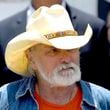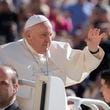Unless you are spending this time of year at a spiritual retreat cut off from TV, newspapers or internet service you cannot escape the blaring music and the marketers attempting to sell you something they promise will bring you happiness and peace.
The many definitions of peace seem inadequate at this or any other time of year.
In Washington, D.C., there is a modern-looking building housing the headquarters for the United States Institute for Peace. Established by Congress in 1984, USIP’s mission is “to promote national security and global stability by reducing violent conflicts abroad.”
How is that working out? Wikipedia has compiled statistics and a map of armed conflicts around the world. While the colors are attractive, what they represent is not.
Then there are instances of terrorism and mass shootings in major cities, not to mention conflict in homes, which result in alienation and sometimes divorce, creating a different kind of casualty for children.
The Person Christmas is supposed to be about offers a different kind of peace from what the world offers and is unable to deliver: “Peace I leave with you; my peace I give you. I do not give to you as the world gives. Do not let your hearts be troubled and do not be afraid.” (John 14:27)
Jesus of Nazareth is speaking to his followers and promising them contentment in a troubled and conflicted world. Not being afraid is a type of peace, isn’t it? We fear not being able to make enough money to pay bills, we fear losing a job or we are fearful of the road taken by a rebellious child. There is also the ultimate fear — what lies beyond the grave? Answering that question can provide the ultimate peace, if one is certain of his or her destination.
People who work at the Institute for Peace undoubtedly have the best of motives. Preventing, or ending, conflict in the world is a worthy goal. Ending one conflict, though, doesn’t produce peace. Sometimes warring tribes rekindle conflicts.
In Washington, political conflict is ongoing with both parties focused on achieving power, but having gained it, neither seems capable of doing much that benefits the country, preferring instead to put politics ahead of public service.
In the 1981 film “Chariots of Fire,” Ian Charleson, who plays the Scottish runner Eric Liddell, is shown speaking to a crowd. He likens faith to a race: “You came to see a race today. To see someone win. It happened to be me. But I want you to do more than just watch a race. I want you to take part in it. I want to compare faith to running in a race. It’s hard. It requires concentration of will, energy of soul…I have no formula for winning the race. Everyone runs in her own way, or his own way. And where does the power come from, to see the race to its end? From within. Jesus said, ‘Behold, the Kingdom of God is within you. If with all your hearts, you truly seek me, you shall ever surely find me.’ If you commit yourself to the love of Christ, then that is how you run a straight race.”
That’s where real peace is found, at Christmas, or anytime. It is the ultimate gift.
About the Author





